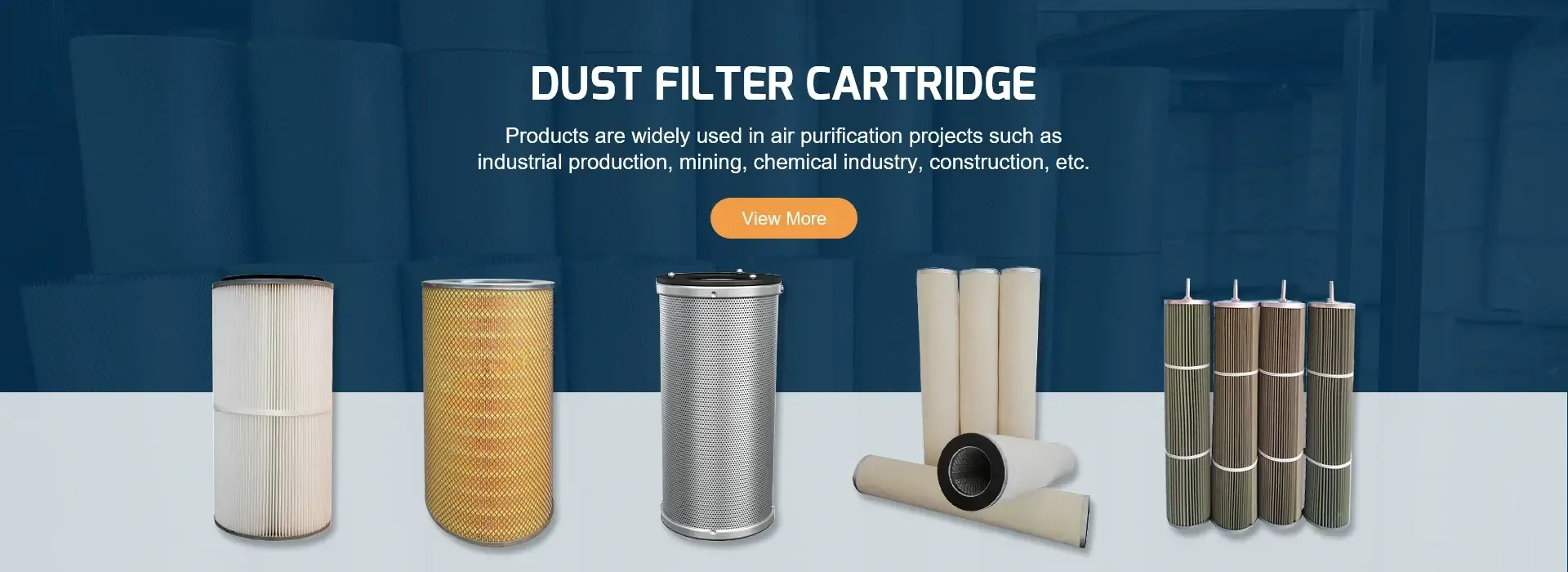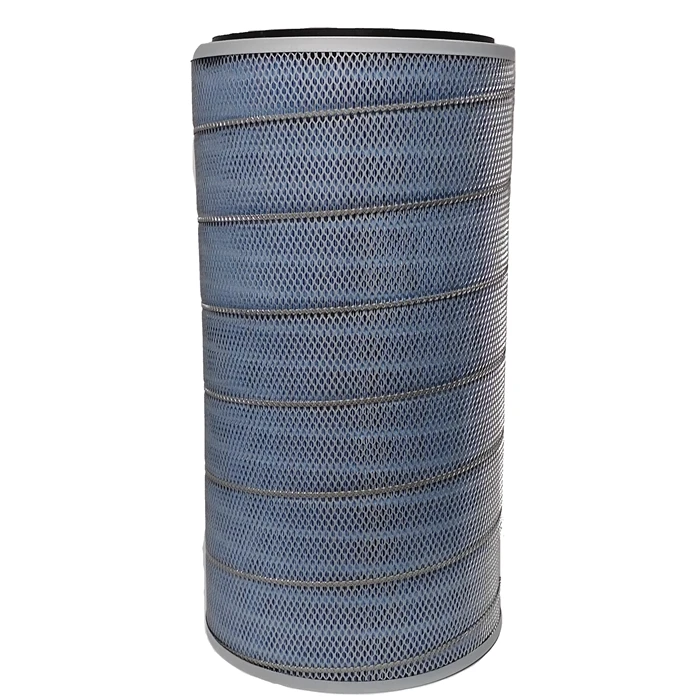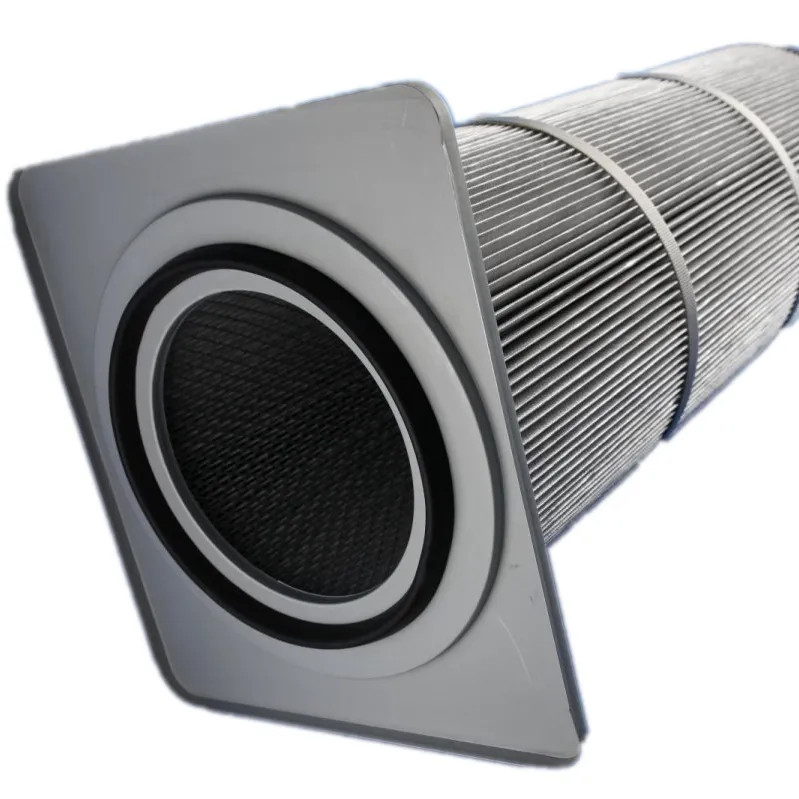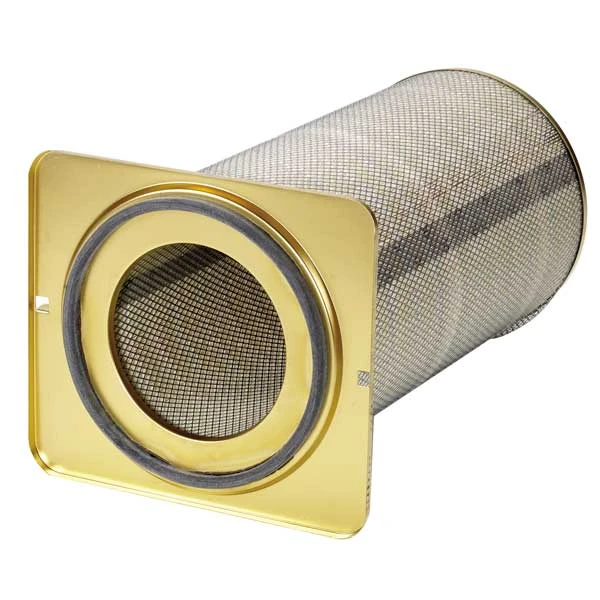 Tel:
+8618931101301
Tel:
+8618931101301
พ.ย. . 22, 2024 03:48 Back to list
industrial dust collector cartridge filters
Understanding Industrial Dust Collector Cartridge Filters
In today's manufacturing and industrial settings, air quality is a significant concern. The presence of airborne particles can pose risks to both worker health and the environment. Industrial dust collector cartridge filters are a vital part of air pollution control systems, designed to address these concerns effectively. This article explores the functionality, benefits, and advancements in cartridge filters used in dust collection systems.
What Are Cartridge Filters?
Cartridge filters are cylindrical filtration devices that contain a pleated filter medium, usually made from materials such as polyester, polypropylene, or cellulose. These filters are specifically designed to capture dust, smoke, and other particulate matter generated during various industrial processes. The pleated design increases the surface area available for filtration, which allows for a higher dust-holding capacity and extended filter life compared to traditional bag filters.
How Do They Work?
The operation of industrial dust collector cartridge filters is based on the principle of forced air. Air laden with dust and particulate matter is drawn into the dust collector system. As the air passes through the cartridge filter, particles become trapped on the filter’s surface while clean air flows out into the environment. Over time, as the dust accumulates, the pressure drop across the filters increases, indicating that it's time for maintenance or replacement.
Most dust collection systems employ a pulse-jet cleaning mechanism. This process involves using a burst of compressed air to dislodge the accumulated dust from the filter. The dislodged particles then fall into a collection hopper for disposal, allowing the filter to regain its efficiency. This automatic cleaning feature greatly reduces downtime and maintenance efforts.
Advantages of Cartridge Filters
1. High Efficiency Cartridge filters can effectively capture 99% or more of airborne particulates, making them highly efficient for controlling industrial dust emissions.
industrial dust collector cartridge filters

2. Space-Saving Design Due to their compact nature, cartridge filters occupy less physical space than traditional bag filters, making them ideal for facilities with limited installation areas.
3. Lower Operating Costs The extended filter life and reduced maintenance time associated with cartridge filters lead to lower operational costs. Businesses benefit from decreased filter replacement frequency and less labor needed for cleaning.
4. Versatility These filters can handle various types of dust – from fine powders to heavier particulates – making them suitable for diverse industries, including woodworking, metal fabrication, food processing, and pharmaceuticals.
5. Environmental Compliance By efficiently capturing harmful particles, cartridge filters help industries adhere to environmental regulations and standards, minimizing their ecological footprint.
Recent Advancements in Technology
The dust collection industry is continuously evolving, with manufacturers focusing on enhancing the performance and durability of cartridge filters. Advanced materials and innovative designs are being developed to improve filtration efficiency and resistance to chemical exposure. For instance, nanofiber technology is being integrated into filter media to enhance particle capture without significantly increasing airflow resistance.
Furthermore, smart dust collection systems equipped with IoT (Internet of Things) technology are emerging. These systems monitor filter performance in real-time, providing alerts for timely maintenance and reducing the risk of unexpected failures during operation. Such advancements ensure that industries remain efficient and compliant with environmental regulations.
Conclusion
Industrial dust collector cartridge filters play a crucial role in maintaining clean air in manufacturing and industrial environments. Their efficiency, compact design, and cost-effectiveness make them a preferred choice for many businesses looking to improve air quality and protect their workforce. As technology continues to advance, these filters will become even more effective at meeting the evolving challenges of industrial dust control, paving the way for safer and healthier workplaces. Investing in high-quality cartridge filters is not just a regulatory requirement; it's a commitment to a sustainable and responsible industrial future.
-
Cold knowledge of air filters: Why are some designed to be pleated?NewsJun.16,2025
-
Factory direct supply! High-precision air filter element wholesale and customizationNewsJun.12,2025
-
A complete analysis of the practical value of activated carbon filtersNewsJun.10,2025
-
Why are high iodine coconut shell activated carbon filters more durable?NewsJun.06,2025
-
Gas Turbine FilterNewsJun.06,2025
-
Filter TurbineNewsJun.06,2025

 Email:
Email:





